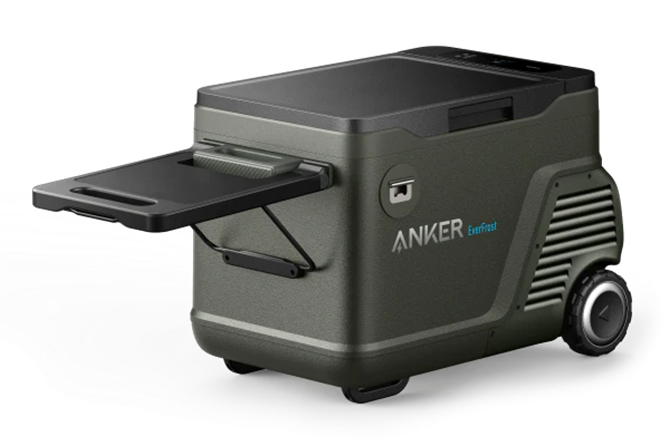
Pennsylvania – Voided Terms And Conditions: Unlawful And Unconscionable Exculpatory Clauses
February 22, 2017
This article originally appeared in a NASP Article for Subrogator – Terms and Conditions. Legal opinions may vary when based on subtle factual differences. All rights reserved.
How many of your subrogation claims have been closed because of the subrogation killing terms and conditions of a contract? A recent decision in the Eastern District of Pennsylvania, United States District Court found in favor of a subrogating insurance carrier and held that the terms and conditions barring recovery were both unlawfully drafted and unconscionable, thus allowing the subrogating carrier to move forward with its subrogation claim. State Farm Fire & Cas. Co., a/s/o Sara Rivera v. Petroleum Heat & Power Co., Inc., 2016 WL 5816182 (E.D. Penn. October 5, 2016).
In this case, State Farm filed its subrogation claim against Petroleum and alleged negligence, breach of warranty, and breach of contract. Petroleum filed a motion for summary judgment seeking dismissal of the claim based on the terms and conditions of its contract with Rivera, as the terms and conditions contained limitation of liability language and a waiver of subrogation provision.
In 2008, Petroleum provided Rivera with a printed receipt for the servicing of her oil storage tanks, and there were no terms and conditions on that receipt. In 2009, Petroleum provided Rivera a one page, two sided document noting that the customer entered into a “service agreement”, and also mentioned billing rights, but the “service agreement” was not provided. In 2010, the same 2009 document was given to Rivera. In 2011, the same 2009 document was given again to Rivera, and an additional three pages printed front and back were also provided. Those three pages contained the general terms and conditions that included the limitation of liability language and a waiver of subrogation provision.
In 2012, the 2011 document was given to Rivera, and was alleged to have been in effect on the date of the loss in 2013. In January of 2013, Petroleum performed repair work for Rivera, and in February of 2013 an oil spill occurred at the Rivera property during the delivery of heating oil.
Petroleum provided testimony that the general terms in conditions were in effect in 2008 – 2010, but those were never provided to Rivera nor produced by Petroleum. Petroleum provided evidence for the 2011 mailing of its invoice and terms and conditions to Rivera. Rivera testified that when she received the monthly invoices, she kept the invoice portion, and threw away the rest of the documents in the envelope, i.e., the terms and conditions. Rivera also provided testimony that she did not receive the terms and conditions in 2011 or 2012, and would not have expected to receive documents in the mail that would explain her service plan. She also testified that she did not understand the limitation of liability language or the waiver of subrogation provision when she became aware of its existence.
Petroleum filed a motion for summary judgment and argued that the terms and conditions waived State Farm’s subrogation claim. State Farm argued that the terms and conditions were not part of any contract between Petroleum and Rivera, and Rivera provided testimony that she never received the terms and conditions. Petroleum relied on the Pennsylvania “mail box” rule in its rebuttal for proof that Rivera received the terms and conditions. Meierdierck v. Miller, 147 A.2d 406, 408 (Pa. 1959). The court found that there was no evidence that the terms and conditions were not mailed to Rivera, and there was sufficient evidence that the terms and conditions were mailed to Rivera.
Under the “mail box” rule, the burden then shifted to Rivera to prove actual receipt. In Pennsylvania, a denial without corroborating evidence of no receipt is not sufficient to rebut the presumption of the “mail box” rule. The court found that Rivera only testified that she did not receive the terms and conditions, and failed to provide additional evidence. The court found that Rivera failed to rebut the presumption that she received the terms and conditions.
State Farm did prevail on its argument that the waiver of subrogation provision was voidable because it was an unlawful exculpatory clause. In Pennsylvania, exculpatory clauses are invalid under three conditions: “First, the clause must not contravene public policy. Secondly, the contract must be between persons relating entirely to their own private affairs and thirdly, each party must be a free bargaining agent to the agreement so that the contract is not one of adhesion.” Topp Copy Prods., Inc. v. Singletary, 626 S.2d 98,99 (Pa. 1993).
First, this court found that the contract language violated public policy because it allowed the party who was in the best position to prevent the risk to transfer the risk to the customer’s insurance company, unilaterally absolving itself as a tortfeasor from any liability. The court went on to say that if Petroleum is held harmless for all losses resulting from its negligence, there is no incentive for Petroleum to use reasonable care. The result is that insurance companies become de facto insurers for a tortfeasor’s negligence.
Secondly, the court found that Rivera was not a “free bargaining agent” to the 2012 contract, and the contract was a contract of adhesion. “An adhesion contact is defined as a standard form contract prepared by one party, to be signed by the party in a weaker position, [usually] a consumer, who has little choice about the terms.” Lytle v. CitiFinancial Servs., Inc., 810 S.2d 643, 658 (Pa. Super. 2002). Here, the court found that Rivera had not knowledge of the heating-oil industry, no chance to negotiate the terms of the contract by Petroleum, and no choice but to accept the terms and conditions. This is what happened when Petroleum suddenly and unilaterally added the waiver of subrogation provision to the 2011 contract.
In addition to finding the terms and conditions as an unlawful exculpatory clause, this court found the contract to be unconscionable and void. In Pennsylvania, “a contract or term is unconscionable, and therefore avoidable, where there is a lack of meaningful choice in the acceptance of the challenged provision [procedural unconscionability], and the provision unreasonably favors the party asserting it [substantive unconscionability]. Salley v. Option One Mortgage Corp., 925 A.2d 115 (2007). The court found the waiver of subrogation provision to be procedurally unconscionable since Rivera lacked a choice in the acceptance of the language, and the language was added in 2011. There was no evidence that Petroleum gave Rivera proper notice that the contract was amended and contained a new risk-shifting clause.
The outcome of the court in this case may provide an opportunity for subrogation when terms and conditions appear on their face to prohibit a claim. It is important to gather all documentation from the insureds to see if they were provided with any terms and conditions, and when certain terms and conditions were put into effect throughout the business relationship. Like here, some insureds have longstanding business relationship with parties, and over a period of time, contract terms and conditions change. The question we all need to ask ourselves is “what other evidence is available to avoid the terms and conditions that prohibit a subrogation recovery?”



